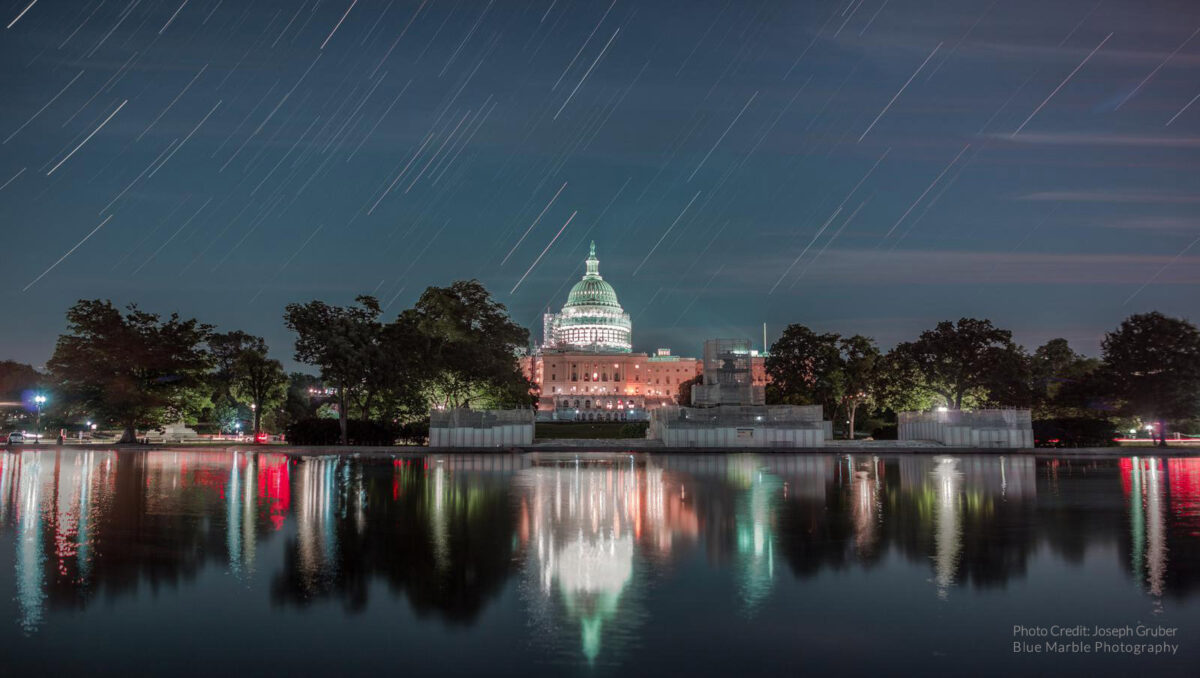The Space Advocate • May 10, 2023
The Space Advocate Newsletter, May 2023
From the Chief of Space Policy

NASA’s 2024 budget proposed $3.4 billion for planetary science, among the highest amount ever requested. Despite this, NASA’s planetary science program is beset by funding problems.
NASA’s VERITAS Venus mission was slashed to starvation-level funding and faces an “indefinite” delay. Though JPL’s workforce challenges are abating, the mission faces a tough political situation from Congress, which appears likely to limit overall U.S. spending next year.
At recent congressional committee hearings on NASA’s budget, the topic wasn’t VERITAS, but Dragonfly — NASA’s wildly ambitious mission to send a drone soaring through the skies of Titan. Though there is yet no official budget profile for the mission, the 2024 request proposed a 20% reduction in spending, likely threatening the mission’s planned 2027 launch date. This reduction drew the ire of Maryland Senator Chris Van Hollern, who blamed Mars Sample Return for causing the cuts.
Mars Sample Return, of course, is facing troubles of its own. Perhaps the most challenging single robotic planetary project of all time, its costs are rapidly increasing, and now requires roughly $1.2 billion in FY 2024 to stay on track for a 2028 launch — more than $300 million more than it received in 2023. In response, NASA convened an unprecedented second independent review board to examine the project.
And as if this weren’t enough, last week we heard that there won’t be enough plutonium-238 to power a Uranus orbiter in the early 2030s, undermining the top recommendation for a new flagship mission by last year’s decadal survey report. NASA relies on the Department of Energy to produce this isotope and has paid them hundreds of millions to restart production — they’re just not making it fast enough.
I could go on. Regardless, we are seeing the visible outcome of years of festering problems, many of which are traceable back to COVID. The pandemic severely disrupted working conditions, employee retention, supply lines, and contributed to rapid inflation. These hit projects in early development much harder than those close to launch. And now, years later, we see a pile-up of problems.
This is all made worse by something laudable: NASA’s unprecedented level of ambition for its planetary program. There are half a dozen billion-dollar-plus missions in active development. A disruption in one creates disruptions in others, which causes disruptions in others, and so on. Add to this a severely divided Congress that may default on the U.S. debt or cut upwards of 22% of NASA’s total budget only wreaks further havoc on project planning and schedules.
I’m not going to sugarcoat this: the next few years may be difficult for fans and advocates of planetary exploration. That doesn’t mean we merely acquiesce. That means we have to further invest our time and energies to advocate for the future in space we all want to see. The Planetary Society will be asking your help in the near future.
There is always risk in pursuing the cutting-edge. But we do it because it is hard. The last thing we want is to retreat from the horizon at the first hint of trouble.
Until next time,
Casey Dreier
Chief of Space Policy
The Planetary Society
Space Policy Highlights

NASA wins accolades from House appropriators worried about space race with China (spacepolicyonline.com) "House Republican leadership may be proposing dramatic funding cuts for agencies like NASA, but the Republicans — and Democrats — on NASA’s appropriations subcommittee seem much more concerned about staying ahead of China. At a hearing on NASA’s FY2024 budget request, the praise for NASA and the agency’s Administrator, Bill Nelson, could not have been more glowing. What it all means for how much money NASA ultimately gets will be interesting to watch."

Dragonfly mission studying effects of potential budget cut (spacenews.com) "A proposed cut of nearly 20% in the budget for NASA’s Dragonfly mission to Saturn’s moon Titan in 2024 could force changes to the mission or its schedule, a top project official said May 3...The proposed cut has gotten the attention of members of Congress."

Environmental groups sue the FAA over SpaceX launch from Texas (arstechnica.com) "Several environmental groups filed a lawsuit against the Federal Aviation Administration (FAA), saying that the agency had not sufficiently regulated the launch of SpaceX's Starship rocket from South Texas. In the lawsuit, filed in federal court in Washington, DC, the groups say that the FAA failed to account for the damage caused by testing and launching the Starship rocket, which results in 'intense heat, noise, and light that adversely affects surrounding habitat areas and communities, which included designated critical habitat for federally protected species as well as National Wildlife Refuge and State Park lands.'"
For more about Starship's inaugural launch and environmental impact, check out this month's episode of the Space Policy Edition podcast.

Concerns growing around Mars Sample Return mission (aip.org) "With NASA’s cost estimates for the Mars Sample Return mission rising, criticism is building in the scientific community and among members of Congress that it is siphoning money from other projects."
Planetary Radio: Space Policy Edition

SpaceX's Starship vs. the environment, with Eric Roesch
Prior to Starship's inaugural launch, environmental policy expert Eric Roesch was outspoken about the possibility of catastrophe. As the rocket launched, it kicked up massive clouds of dust and decimated its launchpad, scattering large chunks of concrete into delicate marine and coastal sanctuaries nearby. Eric blames both SpaceX and its regulatory body, the Federal Aviation Administration (FAA), for allowing the company to skirt responsibility in its environmental reporting and mitigating its impact on its surrounding wilderness. He joins the show to discuss the proper role of environmental regulations, why he believes the FAA was irresponsible in approving SpaceX's launch licenses, and how you can simultaneously protect the environment and local wildlife while still pursuing an ambitious path to space.


 Explore Worlds
Explore Worlds Find Life
Find Life Defend Earth
Defend Earth

